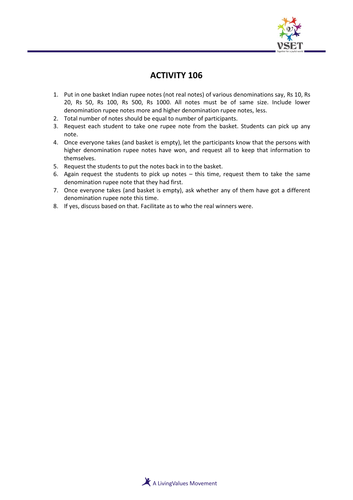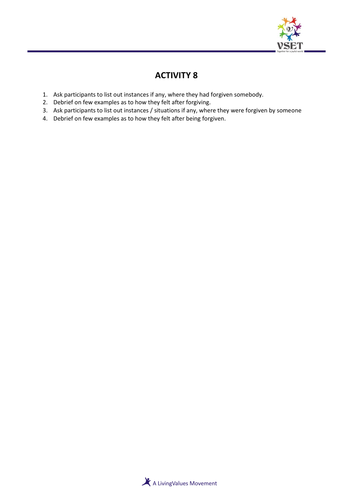Vset
VSET conducts 'LivingValues' (values in action) programs for students of standards 7 to 12. VSET believes in accentuating positives and programs are aimed at kindling the goodness that is already present in every human being. Content and methodology available for everyone to use.




















